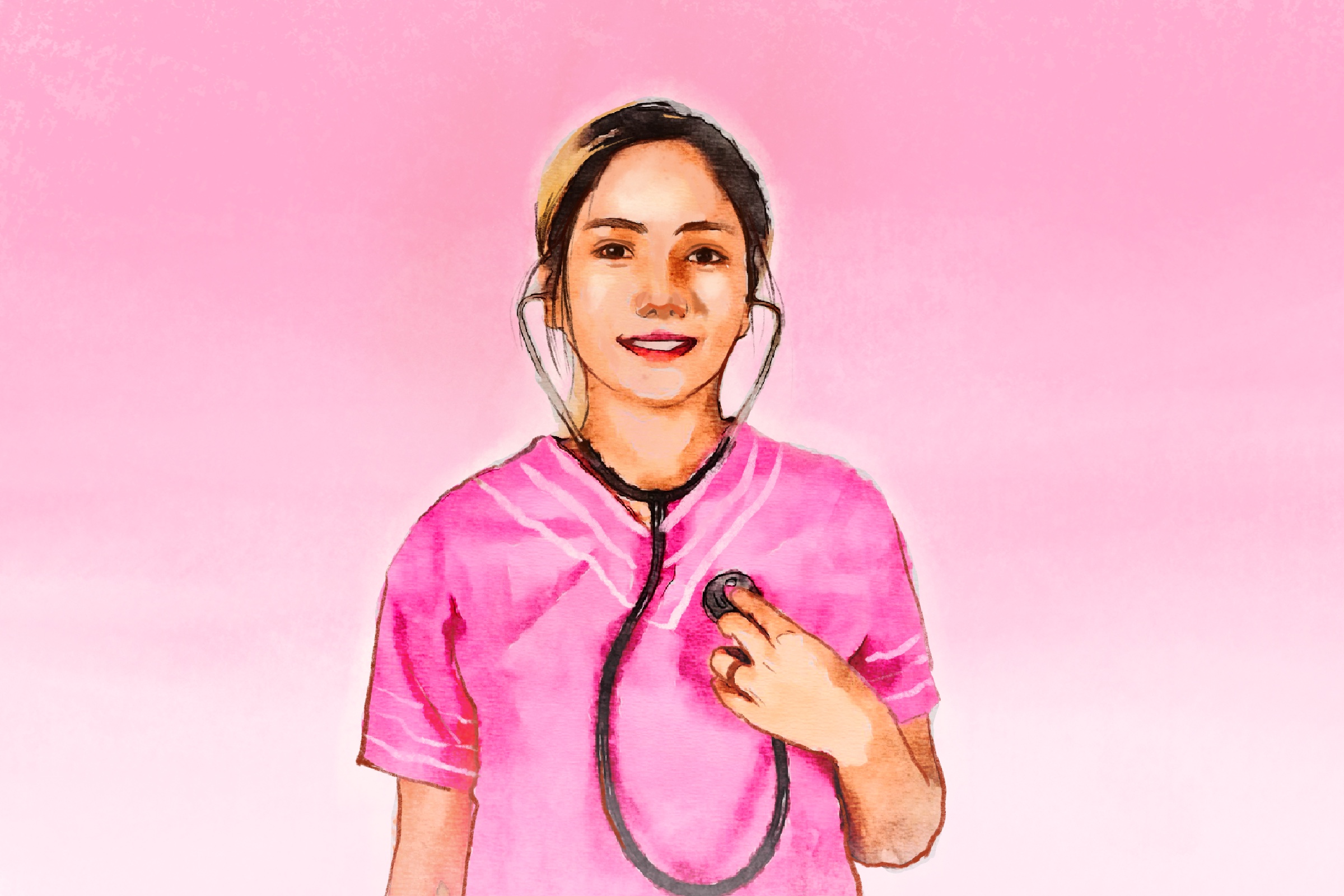Join Sina McCullough, PhD in nutrition, on her quest to uncover truths about food and health. A scientist by training and journalist by nature, Sina offers facts and insights about how to live healthy, happy, and free.
Frustrated with feeling like generic health advice doesn’t work for you? Maybe it’s because science speaks to the average person—and you’re anything but average.
No study or guideline can tell you exactly what’s best for your body. It’s time to embrace your individuality, tune into your body, and take the first steps toward becoming your own expert.
The Limits of Science in Personal Health
As a scientist with a doctorate in nutrition and years of lab research under my belt, I value data, rigor, and evidence-based conclusions. But I’ve also learned the limits of science, particularly when it comes to the intricacies of personal health.
When designing a study, scientists control for variables, or differences among people, to draw conclusions that can be applied to the average person in that specific study population. This means scientists create inclusion criteria to select certain types of people while excluding outliers: people who don’t fit the mold.
If you break down caffeine in an unusually slow or fast way, or if you have anxiety, which can affect how your body responds to stress or medications, guess what? You might be excluded from a study’s results or never invited to participate in the first place. And if you aren’t represented in the study, then its conclusions might not apply to you.
Even among participants who do fit the study criteria, individual responses can vary widely.
Nearly 20 years ago, I attended a conference in Boston titled “Living Well to 100.” Among the many presentations, one scientist’s findings stood out to me. He hypothesized that consuming omega-3 fatty acids would lower cholesterol and triglyceride levels. But the results were far from one-size-fits-all.
Roughly a third of the participants experienced the expected decrease in cholesterol and triglycerides. Another third saw no change at all. Surprisingly, the final third experienced a detrimental response: Cholesterol and triglyceride levels went up.
This underscored an essential truth: Our bodies respond uniquely, even to the same nutrients. What works wonders for one person may not work at all—or may even be harmful—for another.
When organizations, medical systems, and government agencies build standardized recommendations based on those averages, they risk boxing people into advice that doesn’t work for them—and sometimes even harms them.
Why One-Size-Fits-All Doesn’t Work
Some Type 1 diabetics have reportedly found success with a low-carbohydrate diet, achieving better blood sugar control and improved overall well-being. However, because this approach falls outside the
standard of care, some
doctors have advised patients—or parents of diabetic children—to stop using the low-carbohydrate approach.
This highlights how standardized recommendations often fail to account for individual variation, leaving patients and families caught between what works for them and what official guidelines dictate.
The result?
Frustration, confusion, and self-doubt. It’s easy to feel like you are failing or something is wrong with your body when the advice that is supposed to help doesn’t deliver. But the problem isn’t you. The problem is a system that favors averages over individuals.
Imagine your body as an orchestra, with every system—from digestive to endocrine—working harmoniously to create your unique health symphony.
Your microbiome, as personal as a fingerprint, influences how your body responds to everything from broccoli to trauma. Then consider your micronutrient status: Are you low in magnesium or brimming with B vitamins? That difference alone can shift how your body functions day to day.
Now layer in genetic differences, environmental exposures, stress levels, exercise, and how efficiently your liver detoxifies, and you’ve got a composition more intricate than any scientific study can capture. Food sensitivities and digestive enzyme efficiency further complicate the symphony; one person’s “superfood“ is another’s toxin.
I used to be sensitive to chicken, a food widely regarded as healthy. What should have been a clean-eating staple became my kryptonite, leading to systemic inflammation. That taught me a critical lesson: Even the healthiest foods can be harmful if they are wrong for your body.
Given our complexity, it’s no surprise the science of averages can’t wholly capture the symphony within. Science and experts usually mean well—they’re often trying to simplify complex data into actionable advice—but they can unintentionally squeeze us into a box that doesn’t fit.
Instead of trying to conform, maybe it’s time to embrace our individuality.
Becoming Your Own Health Expert
Science is a tool, not the entire toolbox. One of your most powerful tools is your body’s own signals. Your body is constantly communicating with you. When you tune into those signals—and figure out what they mean—you can become your own health expert.
If you’re ready to use your intuition and start experimenting, here are some beginning strategies.
1. Listen to Your Body
Before making any changes, cultivate awareness by becoming the silent observer of your body’s signals. The goal is not to change anything yet but to simply notice the subtle signals your body is communicating.
Pay close attention to how you feel throughout the day—whether eating, exercising, conversing, or watching television. Notice if certain foods energize you or leave you feeling sluggish. If a workout invigorates you one day but drains you the next, consider how other factors (like sleep or stress) may play a role. If a conversation or a television show leaves you feeling down or anxious, note it.
Tuning into these signals can help you identify your unique needs.
2. Start Small
Begin with small, manageable changes instead of overhauling everything at once. Choose one variable; maybe it’s introducing a new supplement, removing or adding a food, trying a new type of movement, watching the sunrise, or turning off screens two hours before bed.
Observe how this single change affects your overall well-being, including your energy level, mood, digestion, bowel movements, sleep quality, and mental clarity.
When experimenting with food, give your body at least three weeks before making another diet change. Certain food sensitivities, called delayed onset hypersensitivities, can take that long to manifest.
3. Choose Curiosity Over Comparison
In a world where health trends and one-size-fits-all advice dominate, it’s easy to feel pressured to follow the crowd. Just because a friend thrives on a particular diet or raves about a specific supplement doesn’t mean it’s the right path for you. And that’s OK.
Shifting your perspective from comparison to curiosity can be a game-changer. Instead of asking, “Why isn’t this working for me?” try reframing it as, “What is my body trying to tell me?”
Give yourself the freedom to be the outlier. Health isn’t about fitting into someone else’s plan; it’s about discovering what makes you thrive.
Embrace your individuality and be patient as you build a relationship with your body; it’s like forming a new friendship, which takes time. But it’s worth the effort because while science provides helpful insights, your body is the ultimate authority on what works best for you. Trust it, listen to it, and honor the unique symphony that makes you, you.
Join the Conversation
Community Question: Have you found a health routine, food, or practice that worked wonders for you, even if it defied conventional advice? Share your personal experiment in the comments below, and let’s break out of the box together!
Disclaimer: The information provided is for educational purposes only and reflects the opinion of Sina McCullough, PhD, a scientist, not a medical doctor. It is not intended as medical advice or a substitute for guidance from your health care provider. Always consult your health care provider before changing your diet, medications, or lifestyle. Use this information at your own risk.














